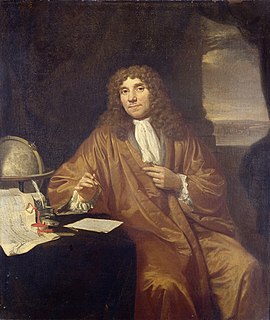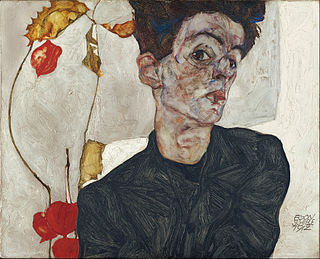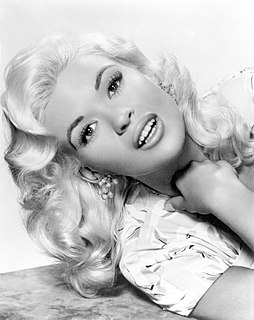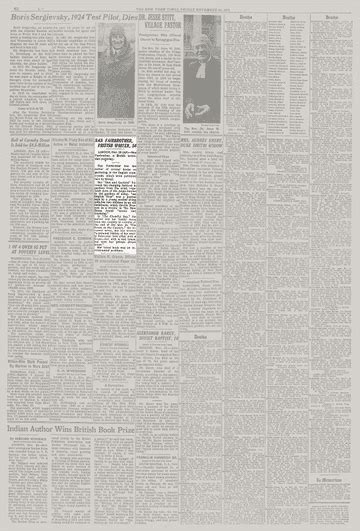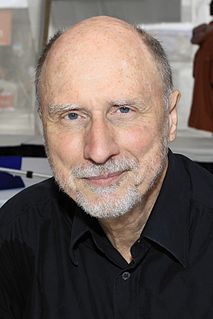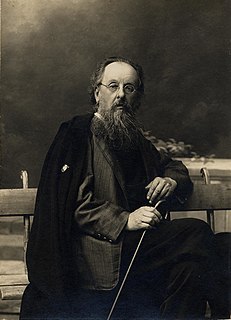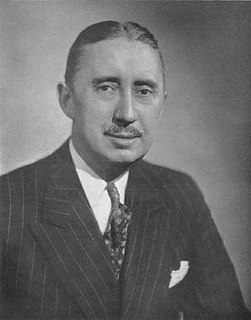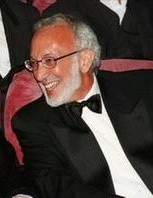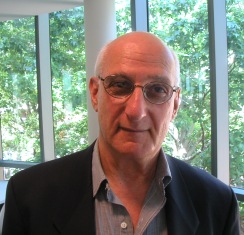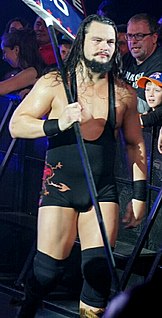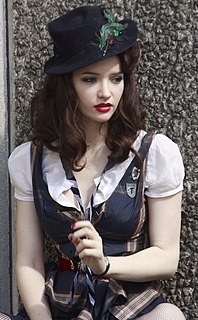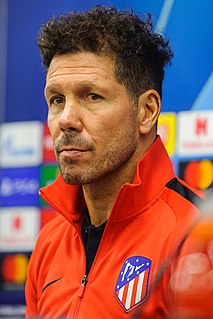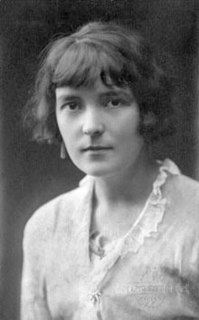Top 1200 Creatures Quotes & Sayings - Page 2
Explore popular Creatures quotes.
Last updated on April 18, 2025.
It is a special kind of enlightenment to have this feeling that the usual, the way things normally are, is odduncanny and highly improbable. G.K.Chesterton once said that it is one thing to be amazed at gorgon or a griffin, creatures which do not exist; but it is quite another and much higher thing to be amazed at a rhinoceros or a giraffe, creatures which do exist and look as if they don't. This feeling of universal oddity includes a basic and intense wondering about the sense of things.
The 31th of May, I perceived in the same water more of those Animals, as also some that were somewhat bigger. And I imagine, that [ten hundred thousand] of these little Creatures do not equal an ordinary grain of Sand in bigness: And comparing them with a Cheese-mite (which may be seen to move with the naked eye) I make the proportion of one of these small Water-creatures to a Cheese-mite, to be like that of a Bee to a Horse: For, the circumference of one of these little Animals in water, is not so big as the thickness of a hair in a Cheese-mite.
You asked for a loving God: you have one... The consuming fire Himself, the Love that made the worlds, persistent as the artist's love for his work and despotic as a man's love for a dog, provident and venerable as a father's love for a child, jealous, inexorable, exacting as love between the sexes. How this should be, I do not know: it passes reason to explain why any creatures, not to say creatures such as we, should have a value so prodigious in their Creator's eyes.
The pleasure and the love of God for His creatures constitute the original state. His pleasure and love are the means by which He has brought His creatures into existence and are the cause of that bringing into existence. He who knows that he possesses neither being nor act rediscovers himself in that original state of pleasure and divine love.
Natural selection is just three factors - over-production, variation, and inheritance combined to produce adaptation to changing local environments. It's not a principle or progress; it's just a principle of local adaptation. You don't make better creatures in any cosmic sense; you make creatures that are better suited to the changing climates of their local habitats.
Our self-perception determines our behavior. If we think we’re small, limited, inadequate creatures, then we tend to behave that way, and the energy we radiate reflects those thoughts no matter what we do. If we think we’re magnificent creatures with an infinite abundance of love and power to give, then we tend to behave that way. Once again, the energy around us reflects our state of awareness.
To admit the existence of a need in God is to admit incompleteness in the divine Being. Need is a creature-word and cannot be spoken of the Creator. God has a voluntary relationg to everything He has made, but He has no Necessary relation to anything outside of Himself. His interest in His creatures arises from His sovereign good pleasure, not from any need those creatures can supply nor from any completeness they can dring to Him who is complete in himself.
Habit must play a larger place in our religious life. We worship when we feel like it, we pray when we feel like it. We read the Bible when we feel like it. Leaving our religious exercises to the promptings of impulse, we become creatures of impulse rather than soldiers of Christ. An army made up of creatures of impulse would be only a mob. So is a church.
The mathematician may be compared to a designer of garments, who is utterly oblivious of the creatures whom his garments may fit. To be sure, his art originated in the necessity for clothing such creatures, but this was long ago; to this day a shape will occasionally appear which will fit into the garment as if the garment had been made for it. Then there is no end of surprise and delight.
Because the divine goodness could not be adequately represented by one creature alone, God produced many and diverse creatures, that what was wanting in one in the representation of the divine goodness might be supplied by another. For goodness, which in God is simple and uniform, in creatures is manifold and divided. Thus the whole universe together participates in the divine goodness more perfectly and represents it better than any single creature.
I have a new name for pain.
What's that?
The Obliterator. Because when you're in pain, nothing else can exist. Not thought. Not emotion. Only the drive to escape the pain. When it's strong enough, the Obliterator strips us of everything that makes us who we are, until we're reduced to creatures less than animals, creatures with a single desire and goal: escape.
A good name, then.
A friend of mine who writes history books said to me that he thought that the two creatures most to be pitied were the spider and the novelist - their lives hanging by a thread spun out of their own guts. But in some ways I think writers of fiction are the creatures most to be envied, because who else besides the spider is allowed to take that fragile thread and weave it into a pattern? What a gift of grace to be able to take the chaos from within and from it to create some semblance of order.
God wanted man to know him somehow through his creatures, and since no creature could fittingly reflect the infinite perfection of the Creator, he multiplied his creatures and gave a certain goodness and perfection to each of them so that from them we could judge the goodness and perfection of the Creator, who embraces infinite perfection in the perfection of his one and utterly simple essence.
The very beginning of Genesis tells us that God created man in order to give him dominion over fish and fowl and all creatures. Of course, Genesis was written by a man, not a horse. There is no certainty that God actually did grant man dominion over other creatures. What seems more likely, in fact, is that man invented God to sanctify the dominion that he usurped for himself over the cow and the horse.
An Individual, whatever species it might be, is nothing in the Universe. A hundred, a thousand individuals are still nothing. The species are the only creatures of Nature, perpetual creatures, as old and as permanent as it. In order to judge it better, we no longer consider the species as a collection or as a series of similar individuals, but as a whole independent of number, independent of time, a whole always living, always the same, a whole which has been counted as one in the works of creation, and which, as a consequence, makes only a unity in Nature.
You think you know what is just and what is not. I understand. We all think we know." I had no doubt, myself, then, that at each moment each one of us, man, woman, child, perhaps even the poor old horse turning the mill-wheel, knew what was just: all creatures come into the world bringing with them the memory of justice. "But we live in a world of laws," I said to my poor prisoner, "a world of the second-best. There is nothing we can do about that. We are fallen creatures. All we can do is to uphold the laws, all of us, without allowing the memory of justice to fade.
Humans, like all other creatures, must make a difference; otherwise, they cannot live. But unlike other creatures, humans must make a choice as to the kind and scale of difference they make. If they choose to make too small a difference, they diminish their humanity. If they choose to make too great a difference, they diminish nature, and narrow their subsequent choices; ultimately, they diminish or destroy themselves. Nature, then, is not only our source but also our limit and measure.
Well," Peter Van Houten said, extending his hand to me. "It is at any rate a pleasure to meet such ontologically improbable creatures." I shook his swollen hand, and then he shook hands with Augustus. I was wondering what ontologically meant. Regardless, I liked it. Augustus and I were together in the Improbable Creatures Club: us and duck-billed platypuses.
I see a world in the future in which we understand that all life is related to us and we treat that life with great humility and respect. I see us as well as social creatures, and when I began to look back and say, ‘what is the fundamental bottom line for us as social creatures?’I couldn’t believe it because it seemed so hippy dippy, but it was Love. Love is the force that makes us fully human.
Consider the subtleness of the sea; how its most dreaded creatures glide under water, unapparent for the most part, and treacherously hidden beneath the loveliest tints of azure. Consider also the devilish brilliance and beauty of many of its most remorseless tribes, as the dainty embellished shape of many species of sharks. Consider, once more, the universal cannibalism of the sea; all whose creatures prey upon each other, carrying on eternal war since the world began.
People who blame the Bible for the modern destruction of nature have failed to see its delight in the variety and individuality of creatures and its insistence upon their holiness. But that delight-in, say, the final chapters of Job or the 104th Psalm-is far more useful to the cause of conservation than the undifferentiating abstractions of science... Reverence gives standing to creatures, and to our perception of them, just as the law gives standing to a citizen.
When I was in my teens I had a series of intensely religious experiences. They deepened my sense of God as the creator of all things. And they also deepened my sensitivity towards creation itself so that concern for God's creatures and animal rights followed from that. Some people think I'm an animal rights person who just happens, almost incidentally, to be religious. In fact, it's because I believe in God that I'm concerned about God's creatures. The religious impulse is primary.
To call ourselves a Microcosme, or little world, I thought it onely a pleasant trope of Rhetorick, till my neare judgement and second thoughts told me there was a reall truth therein: for first wee are a rude masse, and in the ranke of creatures, which only are, and have a dull kinde of being not yet priviledged with life, or preferred to sense or reason; next we live the life of plants, the life of animals, the life of men, and at last the life of spirits, running on in one mysterious nature those five kinds of existence, which comprehend the creatures not onely of world, but of the Universe.




